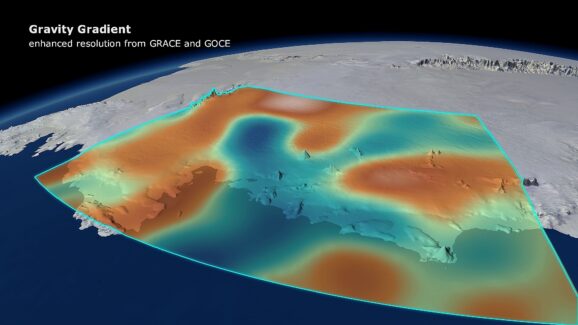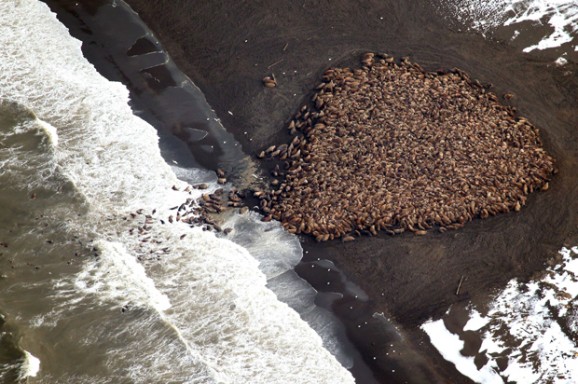Melting Ice In Western Antarctica Decreases Earth’s Gravity
This article is more than 2 years old
 The Western portion of Antarctica has melted so much over the past few years that Earth’s gravity is weaker than it used to be. I’m just going to leave that here and let it sink in for a second.
The Western portion of Antarctica has melted so much over the past few years that Earth’s gravity is weaker than it used to be. I’m just going to leave that here and let it sink in for a second.
The European Space Agency (ESA) has special satellites that it uses to measure variations in Earth’s gravitational field. Basically, the mission involves sending up two satellites that remain in orbit near one another. Because of their proximity, slight changes between their positions signify changes in gravity, which computer programs then interpret. From 2009-2013, the ESA conducted the “Gravity field and steady-state Ocean Circulation Explorer” (GOCE) mission, which gave scientists thorough and accurate gravitational measurements on an unprecedented level. The program was able to map the predictable variations due to the planet’s rotation and other geological shifts, but the most recently measured shift is much more substantial than that.
According to data gathered by GOCE, as well as that rounded up by GRACE, (NASA and the German Aerospace Center’s Gravity Recovery and Climate Experiment mission), scientists believe that West Antarctica has lost approximately 230 billion tons of ice each year of the GOCE mission. That loss of mass is so profound that it has resulted in a weaker gravitational force. What’s more, the loss of that much ice may be irrevocable. The ESA is now planning to measure how much ice all of Antarctica has lost, and while no one knows what number they’ll arrive at, it’s pretty obvious that the figure will be depressing and frightening.
 It’s been a rough stretch for Earth’s poles, as well as for the creatures who are trying to live there. Last week, 35,000 walruses swarmed an Alaskan beach, driven to the area because so much ice has melted that they have nowhere else to go. This summer, the disappearance of Arctic sea ice was so profound that only five other times in history has it been so low. University of Alaska, Fairbanks ice geophysics professor Andy Mahoney says it may only be a matter of decades before summers in the Arctic are essentially iceless.
It’s been a rough stretch for Earth’s poles, as well as for the creatures who are trying to live there. Last week, 35,000 walruses swarmed an Alaskan beach, driven to the area because so much ice has melted that they have nowhere else to go. This summer, the disappearance of Arctic sea ice was so profound that only five other times in history has it been so low. University of Alaska, Fairbanks ice geophysics professor Andy Mahoney says it may only be a matter of decades before summers in the Arctic are essentially iceless.
How much more evidence of climate change do people need before they stop arguing and politicizing what isn’t and never should have become a political topic? From satellites to walruses, the evidence is in. Even those who refuse to believe that human behavior has caused climate change can get behind a movement to do whatever we can to alleviate it. If you don’t see humans as the cause of the problem, why not see us as the solution?












